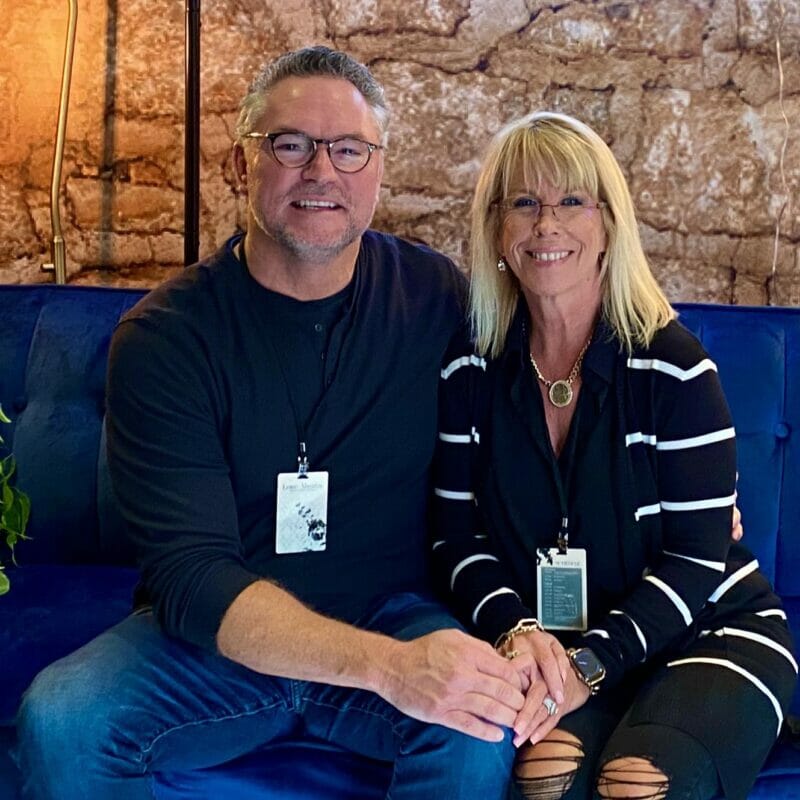Psalms 33:12 NIV
“Blessed is the nation whose God is the LORD.”
1 Timothy 2:1,2 NLT
“I urge you, first of all, to pray for all people. Ask God to help them; intercede on their behalf, and give thanks for them. Pray this way for kings and all who are in authority so that we can live peaceful and quiet lives marked by godliness and dignity.”
Betrayal in the Bible
Every person in this room has been betrayed at one point or another. Betrayal gets very personal very quickly, but it’s real to the human condition, and it’s real to us. The interesting thing about betrayal is that we can’t be betrayed by somebody we don’t know. Betrayal is defined as “the act of breaking or violating trust, loyalty, or confidence that others presume to exist, resulting in moral and psychological conflict within relationships.” It involves disloyalty or treachery, such as supporting a rival or acting against previously agreed-upon norms. It’s the idea that someone has turned on us or against us.
The tragedy of betrayal is that it always comes from the people whom we never expected. When it happens, it’s real, and we have to grieve, wrestle, and toil with it. In the Bible, betrayal is portrayed as common to all. Whether we’re a Christian, business leader, government official, parent, spouse – it’s to all of us – we all experience it, and it’s absolutely gut-wrenching and painful.
Offense can happen in any relationship. The biblical word for offense means “to stumble over or to trip over.” When we’re offended, we’re tripping over something, and when we do, we fall and become wounded, hurt, and angry. Then the details don’t even matter – it’s the dynamic that happens to us all, where a friend or someone close to us gets upset, and offense happens, and we wonder, “Where did that come from?”
The enemy knows how to lay traps for us and set us up for offense that leads to betrayal. Being offended is not a sin. It’s something that happens and brings with it an opportunity for us to respond to. It’s how we respond that dictates whether it then becomes a sin-event or not – like what the Bible calls a “root of bitterness” that goes down deep into our heart, soul, life, and spirit, and then no matter what we may try to do, there’s no way to get that root out.
Any further attempts to reconcile or discuss it always turn toxic. The only way to turn towards reconciliation is through repentance – by turning to God. He can handle our complaints and questions, and any desire we might have to quit or to give up. God’s answer is to “stay the course” and not to quit. He will never leave us or forsake us – he’s got us. Then grief will turn into expectation if we will only decide to stay the course.
Jesus was betrayed, and the Bible is filled with others who were betrayed by people they trusted. When we lose trust and the ability to trust others, we lose it all. From then on, we’ll live in a prison of our own making.
Psalms 41:9 NIV
“Even my close friend, someone I trusted, one who shared my bread, has turned against me.”
Psalms 55:12-14 NIV
“If an enemy were insulting me, I could endure it; if a foe were rising against me, I could hide. But it is you, a man like myself, my companion, my close friend, with whom I once enjoyed sweet fellowship at the house of God, as we walked about among the worshipers.”
Psalms 55:20,21 NIV
“My companion attacks his friends; he violates his covenant. His talk is smooth as butter, yet war is in his heart; his words are more soothing than oil, yet they are drawn swords.”
Job 19:19 NIV
“All my intimate friends detest me; those I love have turned against me.”
The “Christian” response is, “Oh, I have to be nice, even though they betrayed me, wounded me, and hurt me, I have to be nice and just let it go.” But there’s a different way.
The Games We Play When Betrayed
Shame Game – After a betrayal, we begin to second-guess our role in the betrayal. We turn the pain inward and blame ourselves for what happened rather than holding the betrayer accountable. “What did I do wrong? Could I have done something different? Is there something wrong with me? Am I broken beyond repair?”
The enemy loves to take and leverage our pain-points by having us review each one and then cause us to think we’re responsible, and that something is inherently wrong with us for them to have happened – but we don’t have to be chronically nice, which creates an expectation in us that we can never defend ourselves or resist what others do, because “the Bible says to turn the other cheek,” but the enemy can take scriptures out of context and that’s why we must know what is “also written.”
Shame can morph, making it about us.
This traps us in cycles of self-blame and erodes our self-worth, causing us to become stuck and unable to heal and walk in freedom.
Blame Game – This is a refusal to own any part of the situation. The betrayer may use gaslighting or manipulation to make the betrayed partner question their own reality or responsibility.
Pride is the root, and blind spots are the fruit. “They did this to me. It’s their fault, not mine.” The Blame Game keeps us stuck and blocks genuine accountability and healing.
Name Game – This means using different words or labels to soften, reframe, or obscure what happened. We might use less-harsh terms or invent new language to make the situation seem less painful or serious. It’s a form of denial or diminishment.
Frame Game – Means deliberately changing the way we interpret or “frame” the experience, often to shift its meaning, impact, or our response to it.
Changing the Focus – we could shift the attention from the pain caused by the betrayer to what the experience reveals about our own resilience or what we want in future relationships.
Reframing the Narrative – instead of seeing ourselves only as the victim, we might view the betrayal as a catalyst for personal growth or a lesson about our values and boundaries. Reframing initiates a new narrative that gives us back our power, helping us see betrayal as an opportunity to align more closely with our faith-based values and relationship with God.
Maim Game – It means seeking to hurt, damage, or punish the betrayer in response to the pain we’ve experienced. It’s retaliation and revenge based on a sense of entitlement or license. This may involve spreading damaging rumors or truths about the betrayer, sabotaging the betrayer’s relationships, reputation, or opportunities, seeking revenge through actions meant to cause emotional distress or pubic embarrassment, and using social media or mutual friends to isolate or shame the betrayer. The focus of the Maim Game is on retribution rather than healing or resolution. This can escalate conflict and prolong emotional pain for everyone involved, often leading to further cycles of hurt and retaliation.
Jesus’ betrayals
Luke 22:3-6 NLT – Jesus and Judas
“Then Satan entered into Judas Iscariot, who was one of the twelve disciples, and he went to the leading priests and captains of the Temple guard to discuss the best way to betray Jesus to them. They were delighted, and they promised to give him money. So he agreed and began looking for an opportunity to betray Jesus so they could arrest him when the crowds weren’t around.”
Mark 14:45-50 NLT – Jesus and the Disciples
“As soon as they arrived, Judas walked up to Jesus. ‘Rabbi!’ he exclaimed, and gave him the kiss. Then the others grabbed Jesus and arrested him. But one of the men with Jesus pulled out his sword and struck the high priest’s slave, slashing off his ear. Jesus asked them, ‘Am I some dangerous revolutionary, that you come with swords and clubs to arrest me? Why didn’t you arrest me in the Temple? I was there among you teaching every day. But these things are happening to fulfill what the Scriptures say about me.’ Then all his disciples deserted him and ran away.”
Luke 23:22-25 NLT – Jesus and the People
“For the third time he demanded, ‘Why? What crime has he committed? I have found no reason to sentence him to death. So I will have him flogged, and then I will release him.’ But the mob shouted louder and louder, demanding that Jesus be crucified, and their voices prevailed. So Pilate sentenced Jesus to die as they demanded. As they had requested, he released Barabbas, the man in prison for insurrection and murder. But he turned Jesus over to them to do as they wished.”
Matthew 26:1-5 NLT – Jesus and the Religious Rulers
“When Jesus had finished saying all these things, he said to his disciples, ‘As you know, Passover begins in two days, and the Son of Man will be handed over to be crucified.’ At that same time the leading priests and elders were meeting at the residence of Caiaphas, the high priest, plotting how to capture Jesus secretly and kill him. ‘But not during the Passover celebration,’ they agreed, ‘or the people may riot.’ “
Mark 15:34 NLT – Jesus and God
“Then at three o’clock Jesus called out with a loud voice, ‘Eloi, Eloi, lema sabachthani?’ which means ‘My God, my God, why have you abandoned me?’ ”
God actually turned his back on Jesus, and the reason he did was because of us – he did it for us. This is Jesus, who did it for us, so he could give his life to us, and so he could live his life through us – if we’ll only say “Yes” to Jesus.
So, what’s the takeaway?
1] Jesus won, so in Christ we win too! He gave his life for us and was crucified on our behalf, and three days later rose again.
John 16:33 NIV
“I have told you these things, so that in me you may have peace. In this world you will have trouble. But take heart! I have overcome the world.’ ”
2] Faith in Jesus as Savior and Lord of our life is a faith that overcomes anything the world throws at us, whether it’s betrayal, grief, loss, pain, or anger. Why? Because we’re in Christ, and Christ has already overcome the world. We try to fight battles that he has already won. He already died and paid the price, and we’re still in the trenches trying to figure it out and fight when he’s already won – and because we’re in him, we win too!
3] When we know who we are, we’ll know what to do.
Colossians 1:27 ESV
“To them God has chosen to make known among the Gentiles the glorious riches of this mystery, which is Christ in you, the hope of glory.”
When that becomes a revelation to us, it’ll be like a bomb going off in our soul. “Christ through you, the confident and joyful expectation of his manifested presence.” Jesus wants to live his life through us, not just give his life to us. What about today or tomorrow when we need help? What if we need to make a decision when our kid’s spinning out? – Or if we have a problem at work that needs a resolution? We need solutions! Guess what? Christ through us, not just in us. Christ living his life through us so we live with joyful confidence and live up in a down world.
4] When we know the truth, we’ll never be afraid again!
John 11:25 NLT
“Jesus told her, ‘I am the resurrection and the life. Anyone who believes in me will live, even after dying.’ ”
Pastor Jimmy’s Daily Grind – April 20th
Long before Jesus was crucified, buried, and raised from death to life, he understood his role in redemption. “I am the Resurrection and the Life.” Jesus also understood there’s a veil between this material world and the heavenly, spiritual realm “on earth as it is in Heaven.” When you know what’s coming after you shed your “earth suit”, you’ll never be afraid another day in your life. Jesus said, “Anyone who believes in Me will live!” This all doesn’t come back to a technique – it comes back to a Person – Jesus Christ. Jesus died for us so He could give His life to us so He could now live His life through us.”
Prayer
Dear Jesus, thank You for being my Lord and my Savior! Thank You for giving Your life for me – for being resurrected on my behalf. Because You live, I can live. I give You my past, my present, my future – all that I am. We love You and honor You. In Jesus’ name. Amen
This is an updated edition of a post originally published on The Bridge
Featured Image by David Yu from Pixabay




















Comments are closed.